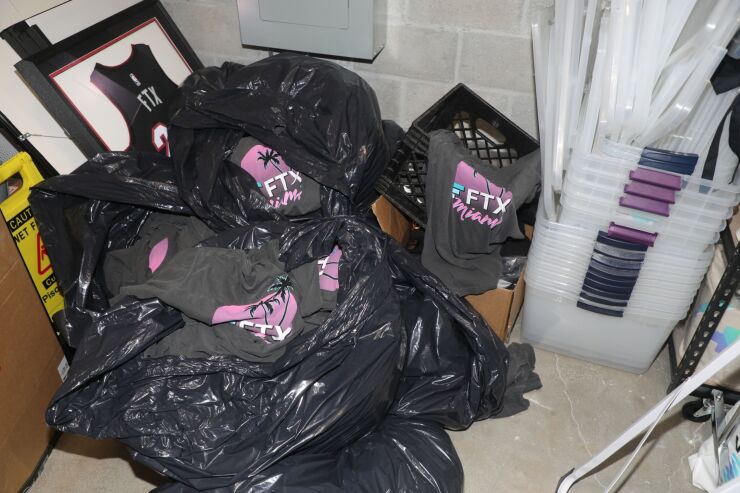Suppose you're a crypto company that wants to own a bank approved to engage in digital-asset activities. Here's the fast-track way you might achieve that, while complying with rules in place since August:
Go buy a bank, any bank. Convert your bank to a Federal Reserve member bank, meaning that your bank's federal supervisor will now be the Fed, not the Office of the Comptroller of the Currency or the Federal Deposit Insurance Corp. Wait a little bit, maybe six months. Then send the Fed a letter notifying it that your bank is going to engage in digital-asset activities and that you have determined the activities your bank will conduct are permissible. Promise that you will soon establish a risk management framework to manage this complex new business. If you're lucky, your bank won't be examined for a year or two. By then, you might have cranked up quite a dumpster fire.

To be clear, I'm not recommending this. But it appears at least one crypto group has gone this route. The Fed's
SR 22-6 leaves it up to the bank to analyze whether such activity is permissible and doesn't require the Fed to fully vet the bank's business plan, technology, risk management framework or any new management prior to the bank engaging in digital-asset activities.
This guidance is unlike the guidance provided by the
The Fed's approach, by contrast, has created regulatory arbitrage not just relative to the OCC and FDIC, but also within the Fed itself because incumbent member banks can wave themselves in while new applicants for Fed membership, including a de novo bank that I advise,
A case in point. In September 2020, the Fed
In June 2021, the Fed
This acquisition almost certainly did not conform to the Fed's 2020
It also appears that SR 22-6 has allowed Moonstone Bank to engage in digital-asset activities, including
I suggest the Fed revise SR 22-6 so that prior approval is required for its supervised banks to engage in digital- asset activities. My call for the Fed to improve its oversight is not a call for the Fed to step away from digital assets.
The Fed needs to lean into digital assets, and do it soon. Why? Because big changes are still happening despite the current debacle in crypto lending and trading markets. For example, in the past two weeks the social media giants
How might the Fed lean into digital assets? SR 22-6 covers the traditional bank risks that should be considered for a bank to engage in a new activity. But I suggest that the Fed should fully understand how traditional bank risks such as liquidity, interest rate or credit risk will impact a bank differently when engaging in digital-asset activities.
For instance, the Fed should require banks to conduct a stress test in which all deposits related to digital assets are withdrawn within six hours — reviewing both the intraday liquidity and operational risks of that very realistic scenario.
Why six hours? Because that's how fast two stablecoins have
Most important, if a bank has developed secure technology, an adequate risk management framework, and has the management to conduct digital-asset activities in a safe and sound manner, then the Fed should grant approval in a timely manner, whether the bank is de novo or incumbent.
The status quo surrounding Fed-supervised banks' entry into the crypto markets is untenable. Allowing any Fed-regulated bank to just send a notice to the Fed and hoping a dumpster fire doesn't break out before examiners or taxpayers have to come to the rescue is not the answer. That is the plot of a bad "Inspector Gadget" episode.







